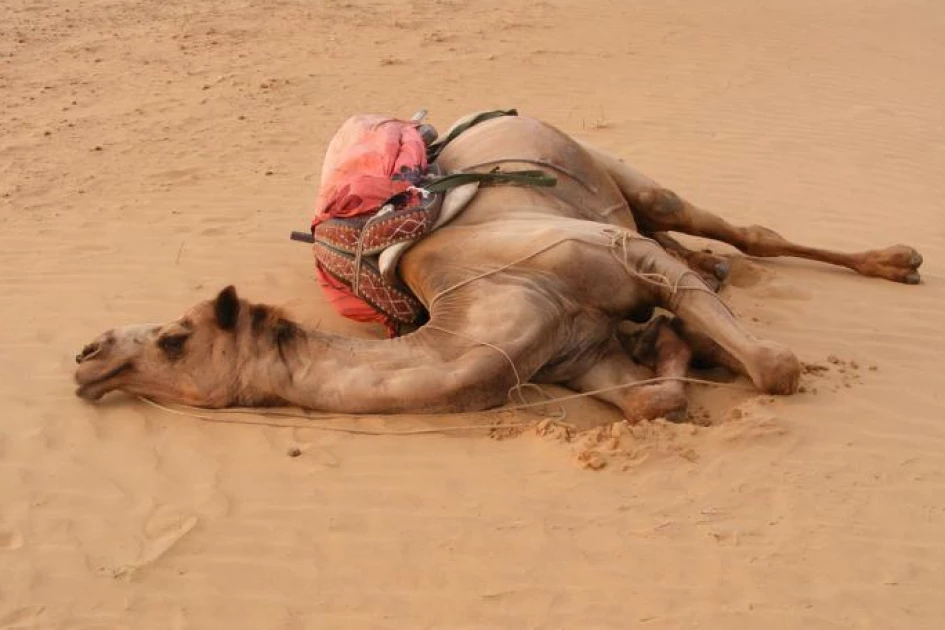Outbreak of mysterious camel disease hits Marsabit

File image of a camel.

Audio By Vocalize
Gindole Dabello is counting losses after he lost pregnant camels to the mysterious disease.
"I am in shock. This is a huge loss to my family. We call for speedy lab tests to ascertain the main cause" said Dabello.
Tumal Orto, a livestock farmer said the initial report indicated that over 40 herders reported cases of camel deaths.
The farmer, however, said herders used “tobacco” as a traditional means of treatment, bypassing professional advice given by veterinary officers.
“I once encountered the same experience, raised it with the animal health officers and diligently followed their advice and saved my livestock,” said Tumal.
He urged the county government to embrace the farmer-to-farmer (F2F) approach to sensitize the livestock farmers.
Mr. Tumal added; ” I advise livestock farmers to be responsible for managing their herds which includes providing medical care to their animals”.
According to an official document exclusively seen by Citizen Digital, the disease was first reported in February with the Department of Veterinary Services receiving reports on camel death from a “mysterious disease”.
In the report submitted by Woto Forole, Ward Animal Health Officer based in North-Horr, the disease syndrome gradually killed mature and recently calving/lactating camels belonging to different owners sporadically.
“We received the report through phone calls from the area chief and the local herders and as a department we visited the area four times between February and April to address the issues,” reads part of the report.
During the four visits, the vet officers attended to the clinically sick camels with broad-spectrum penicillin-based antibiotics with camels “responding well” to the treatment suggesting that the disease could be linked to bacterial infections or its equivalents.
In a viral video clip, locals were seen cutting meat from a dead camel for consumption. The veterinary team has since advised the community not to consume the meat from any affected livestock and to be vigilant.
The animals manifested a clinical history of laboured breathing, ocular discharges, cough, lameness of rare limbs, loss of appetite, and dehydration with death occurring a few days after the disease onset.
Other signs include failure of camels to respond to treatment.
The veterinary department also noted with concern that the community treated the animals with 10% oxytetracycline at limited doses which never gave positive results. Later the veterinary team recommended the use of broad-spectrum penicillin-based antibiotics.
Currently, sampling of the camels and case-by-case treatment is ongoing. The blood samples will be later dispatched to Kabete Veterinary Investigation laboratories for confirmatory diagnosis.
The department has further made special requests to any willing partners to come on board and assist in investigation and possible intervention.


Leave a Comment